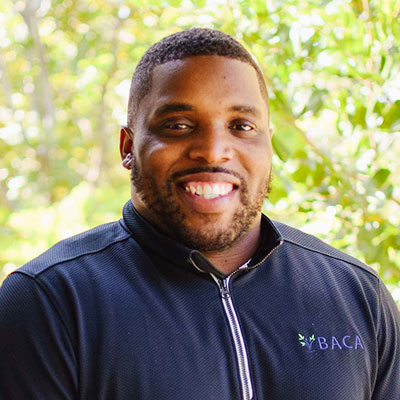If you pay attention to current events, you know there’s a lot going on in the world right now – and if you’re looking for simple ways to protect your mental health, we have a list of ten effective, proactive steps you can take, starting today. All the things on this list – except the last one, which may take planning – you can start right now, with no preparation, no cost, no subscriptions, and no special equipment.
Ten Things to Do Right Now to Protect Your Mental Health
1. Have a Snack
If you’re scrolling through news and it’s getting you down, step away and have a healthy snack. We recommend avoiding sugary snacks and processed foods, and instead trying a snack like fresh or dried fruit, raw vegetables, seeds/nuts, or a sandwich made with whole grain bread. These foods promote good overall health, which is a great way to increase to prote
You can find more tips on nutrition in our article here:
My College Student Has Anxiety: How Can I Help?
2. Drink Water
You’ve heard it a thousand times because it’s good advice. If you’re having a bad day, feeling tired, feeling irritable, or feeling out of sorts, it can’t hurt – and it can definitely help – to ensure you’re properly hydrated.
To read about the evidence behind the relationship of hydration and mood, please read these two peer reviewed articles:
Effects of Hydration Status on Cognitive Performance and Mood
Do Small Differences in Hydration Status Affect Mood and Mental Performance?
3. Take a Walk
The impact of exercise on mental health is well documented. To read our article on the value of physical fitness for teens – which applies equally to all age groups, please read our article here:
Can Physical Fitness and Exercise Improve Teen Mental Health?
4. Do the Dishes
While everyone has their own relationship to cleanliness and tidiness – some thrive within a slightly disorganized environment, while others don’t – most research shows that an orderly home/living space promotes positive mental health and can reduce symptoms of anxiety. To learn how to wash the dishes in a way that can protect and improve mental health, read this article from the peer-reviewed journal, Mindfulness:
Washing Dishes to Wash the Dishes: Brief Instruction in an Informal Mindfulness Practice
5. Talk to a Friend
Social connections with empathetic, understanding, and helpful friends can improve life on virtually every level. If you’re freaking out about the world, one thing that can help is venting to a friend. If you’re unsure how to ask for or offer support to a friend, please read our article here:
Teens: Do You Know How to Support Your Friends?
6. Listen to a Friend
This is the flipside of the suggestion above. When you’re freaking out about something – maybe the world, maybe something personal – sometimes it helps to settle down, quiet down, take a step back, and listen to a friend. They may have similar concerns, which you can work through together. Or they may have other things on their mind. In which case, you can help them by listening and help yourself by focusing on something other than your concerns for a short period of time.
To learn about listening in a way that helps support the person talking, please read the section on active listening in this article on our blog:
Young Adults Isolated and Lonely at College: How Can Parents Support Their Mental Health?
7. Check on Your Family
While your friends know you now, your family knows you. They help you situate yourself in the grand scheme of life, and you do the same for them. To learn about the importance of deep, long-lasting family connections, please read our article below. And if you’re not close to your biological family, don’t worry: your chosen family and peer group can perform a similar function in your life:
How Does Having Regular Family Dinner Help Teens?
8. Check on Your Friends
This is different than calling a friend to vent – that’s about you. It’s also different than listening to a friend who’s freaking out, themselves. This is about taking a moment to reach out to someone who matters to you simply to say, “Hey, how ya been? How you doing?” This can combat loneliness – which can lead to freaking out, as well as a host of other mental health problems:
How Does the Loneliness Epidemic Affect Teens?
9. Check on a Neighbor
Do you have an older neighbor who lives alone and might need help with something? Do you have a younger neighbor who might need help, too? Check your neighborhood social media sites/groups, on whatever platforms you prefer: often people post when they need support with little things. And, as the saying goes, little things mean a lot. Community connection is one of the best ways to improve mental health for ourselves, our families, and our neighbors. To learn more, please read this article on our blog:
How Can We Reduce Stigma Around Mental Illness?
10. Volunteer for a Cause
Okay – a formal volunteer opportunity may take a day or two to arrange, but not always: call a local homeless shelter or food bank, and ask about their needs. They may need help today. If not, you can review the list above – family, friends, neighbors – and do something nice or helpful for a person in your circle. This can get your attention on something else and get you out or your head, all while helping someone who needs help, or helping someone close to you. The following article on our blog focuses on teens, but each suggestion links to organizations for whom anyone at any age can volunteer:
Where Can My Teen Volunteer This Summer?
No matter who you are – adolescent, young adult, or parent of a child, teen or young adult in therapy or treatment – these ten tips can boost your mood and help you get your mind of current events, if they’re bothering you. Take a moment, take a breath, connect with people you love, and you can change your mood for the better.


